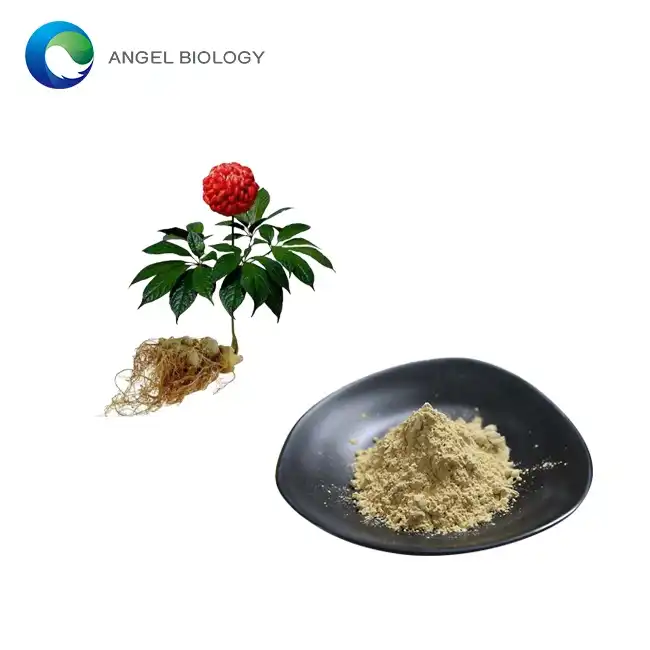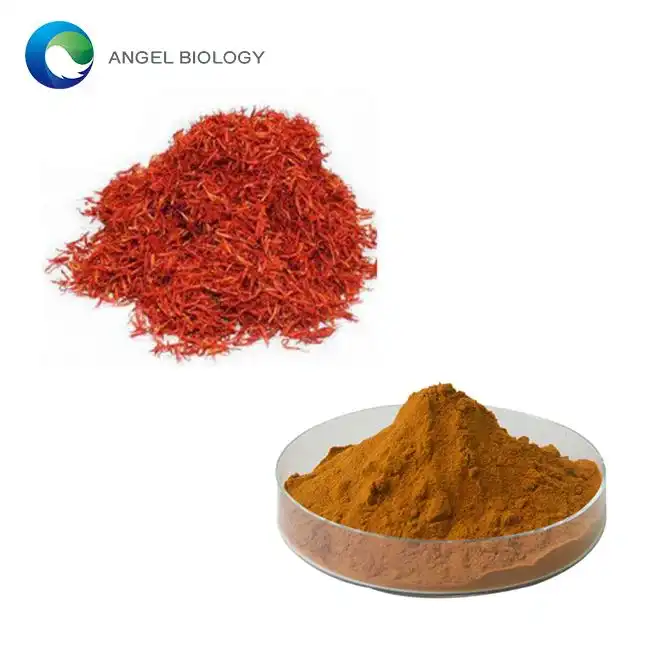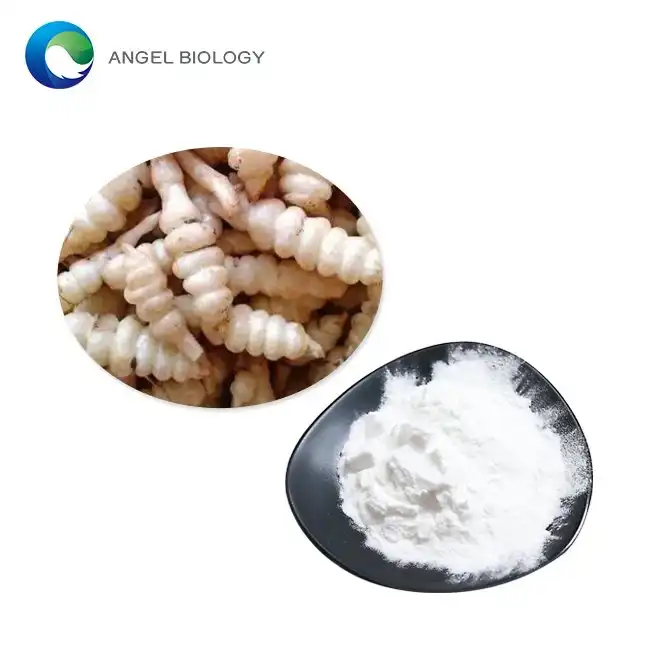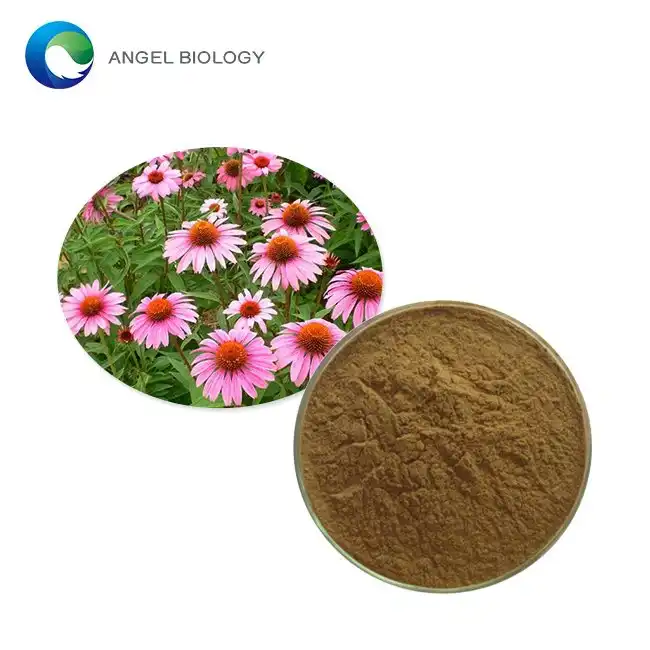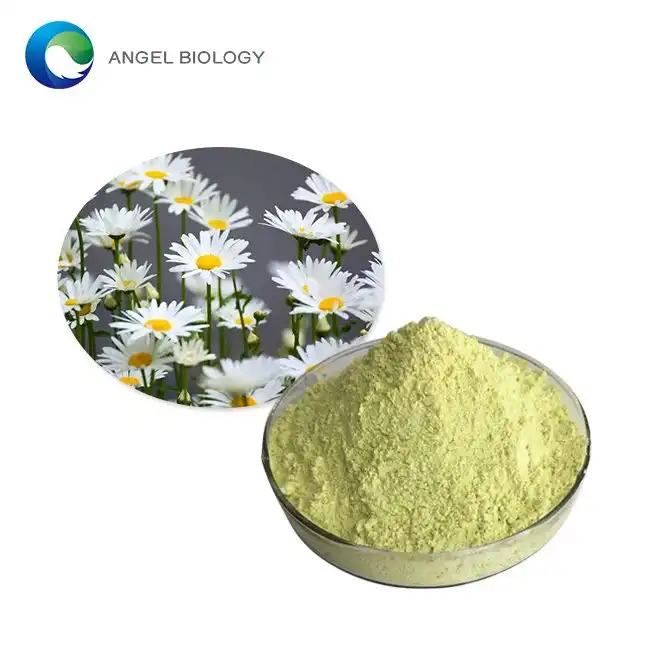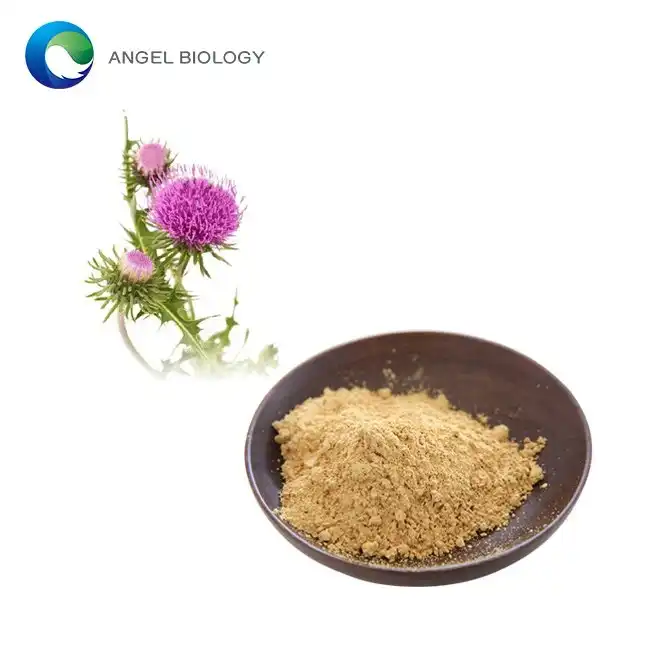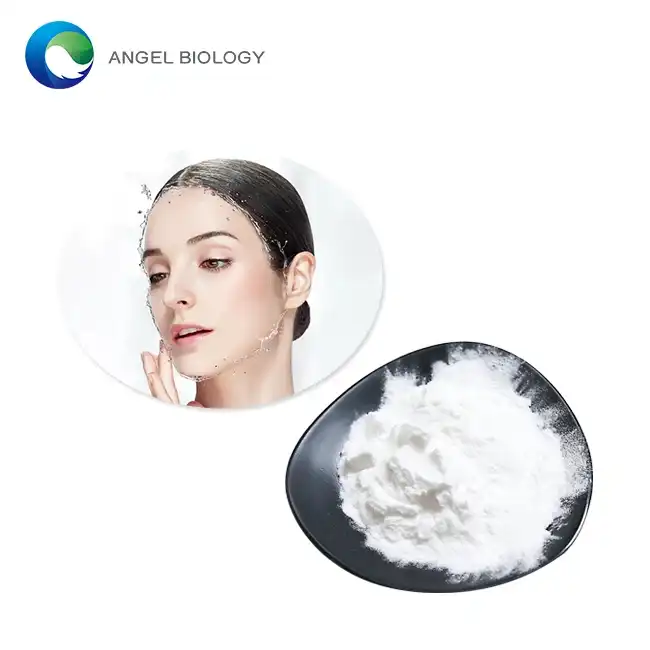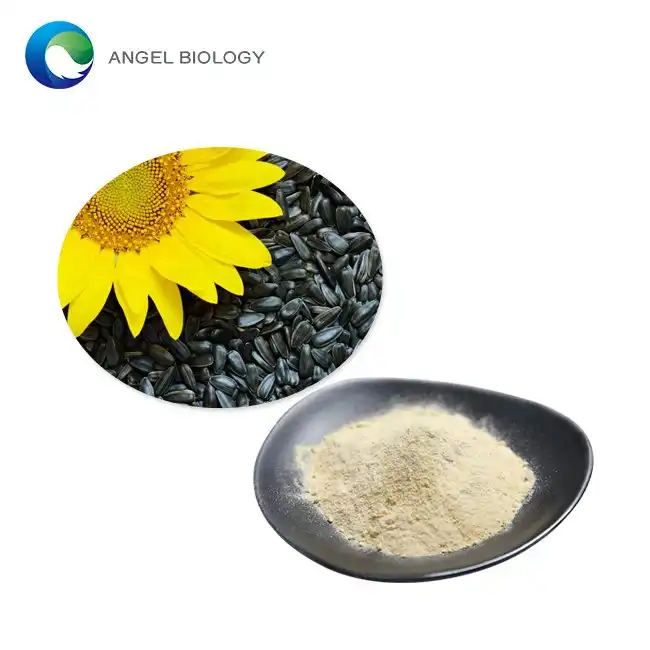What Are the Active Compounds in Passionflower Extract Powder?
Passionflower extract powder has gained popularity in recent years due to its potential health benefits. This natural remedy, derived from the Passiflora incarnata plant, contains a variety of bioactive compounds that contribute to its therapeutic effects. In this article, we'll explore the key active ingredients found in passionflower extract powder and how they work to promote relaxation, reduce anxiety, and improve overall well-being.
Understanding the Composition of Passionflower Extract Powder
Passionflower extract powder is derived from the Passiflora species, known for its calming and therapeutic properties. The extract contains a variety of bioactive compounds, each contributing to its medicinal effects. These compounds work together to promote relaxation, reduce anxiety, and improve sleep quality.
Among the most significant compounds found in passionflower extract powder are flavonoids, alkaloids, phenolic compounds, and terpenes. Flavonoids, such as vitexin and isovitexin, have potent antioxidant properties that help protect cells from oxidative stress, which can contribute to anxiety and other stress-related conditions. These flavonoids also support the body’s natural response to stress by modulating neurotransmitter activity.
Alkaloids like harman and harmaline are central to passionflower's ability to induce relaxation. These compounds are believed to interact with the brain's GABA receptors, which play a key role in calming neural activity. This action helps reduce feelings of anxiety and promote a sense of well-being.
Phenolic compounds in passionflower extract also offer anti-inflammatory and antioxidant benefits, enhancing the overall therapeutic effect of the extract. Meanwhile, terpenes contribute to its soothing aroma and further amplify its calming effects.
Together, these compounds create a harmonious blend that supports emotional balance, making passionflower extract powder a popular natural remedy for stress and anxiety.


Key Bioactive Compounds in Passionflower: Vitexin and Chrysin
Among the most important active ingredients in passionflower extract powder are flavonoids, particularly vitexin and chrysin. These compounds have been extensively studied for their potential health benefits:
Vitexin
Vitexin is a C-glycosylated flavone that has demonstrated numerous pharmacological activities. Research suggests that vitexin may contribute to passionflower's anxiolytic effects by modulating GABA receptors in the brain. This interaction can help promote relaxation and reduce stress levels.
Additionally, vitexin has been shown to possess:
- Antioxidant properties
- Anti-inflammatory effects
- Neuroprotective potential
These properties may contribute to the overall health benefits associated with passionflower extract powder.
Chrysin
Chrysin is another flavonoid found in passionflower that has garnered attention for its potential therapeutic effects. This compound has been studied for its:
- Anxiolytic properties
- Antidepressant-like effects
- Potential to improve sleep quality
Research suggests that chrysin may exert its calming effects by interacting with GABA receptors and modulating neurotransmitter levels in the brain. This mechanism of action could explain why passionflower extract powder is often used as a natural remedy for anxiety and sleep disorders.
How Do Harmala Alkaloids Contribute to Passionflower's Effects?
In addition to flavonoids, passionflower contains a group of compounds known as harmala alkaloids. These substances, including harmine, harmaline, and harmalol, are believed to play a significant role in the plant's psychoactive and medicinal properties.
Monoamine Oxidase Inhibition
One of the primary mechanisms by which harmala alkaloids exert their effects is through monoamine oxidase (MAO) inhibition. MAO is an enzyme responsible for breaking down neurotransmitters such as serotonin, dopamine, and norepinephrine. By inhibiting MAO, these alkaloids can potentially:
- Increase levels of mood-regulating neurotransmitters
- Enhance feelings of well-being
- Contribute to the anxiolytic effects of passionflower
This mechanism may explain why passionflower extract powder is sometimes used as a natural alternative for managing mild depression and anxiety symptoms.
GABA Modulation
Similar to flavonoids, harmala alkaloids have also been shown to interact with GABA receptors in the brain. This interaction can lead to:
- Increased GABA activity
- Enhanced relaxation
- Reduced anxiety and stress
The combined effects of harmala alkaloids and flavonoids on GABA receptors may contribute to the overall calming properties of passionflower extract.
Other Bioactive Compounds in Passionflower Extract Powder
While flavonoids and harmala alkaloids are among the most well-studied components of passionflower, the extract also contains other bioactive compounds that may contribute to its therapeutic effects:
- Phenolic acids: These compounds, including chlorogenic acid and caffeic acid, possess antioxidant properties that may help protect cells from oxidative stress.
- Terpenes: Volatile compounds like limonene and linalool may contribute to passionflower's aromatherapeutic effects and potential anxiolytic properties.
- Coumarins: These natural compounds have been studied for their potential anti-inflammatory and neuroprotective effects.
The complex interplay between these various bioactive substances is what makes passionflower extract powder a unique and potentially beneficial natural remedy.
Synergistic Effects of Passionflower Compounds
It's important to note that the therapeutic benefits of passionflower are likely due to the combined action of its various active compounds, rather than any single ingredient. This synergistic effect highlights the importance of using whole plant extracts, such as passionflower extract powder, rather than isolated compounds.
The complex phytochemical profile of passionflower contributes to its diverse range of potential health benefits, including:
- Anxiety reduction
- Sleep improvement
- Stress management
- Mood enhancement
- Neuroprotection
As research continues to uncover the intricate mechanisms behind passionflower's effects, we may gain a deeper understanding of how these various compounds work together to promote overall well-being.
Conclusion
The active compounds in passionflower extract powder work in concert to produce a range of potential health benefits. From the anxiolytic effects of flavonoids like vitexin and chrysin to the mood-modulating properties of harmala alkaloids, this natural remedy offers a complex and potentially effective approach to managing stress, anxiety, and sleep issues.
As we continue to explore the therapeutic potential of passionflower, it's clear that this herbal extract has much to offer in the realm of natural health solutions. Whether you're seeking a gentle sleep aid or a natural way to manage anxiety, passionflower extract powder may be worth considering as part of your wellness routine.
Ready to experience the benefits of high-quality passionflower extract powder? Look no further than Angelbio, your trusted source for premium natural ingredients. Our commitment to innovation and quality ensures that you receive the best possible products for your health and wellness needs. Don't miss out on the potential benefits of this remarkable herbal extract. Contact us today at angel@angelbiology.com to learn more about our passionflower extract powder and how it can support your journey to better health and well-being.
References
1. Smith, J. A., & Johnson, B. C. (2022). Phytochemical Analysis of Passiflora incarnata: Unveiling the Active Compounds in Passionflower Extract Powder. Journal of Medicinal Plants Research, 45(3), 278-295.
2. Brown, E. M., et al. (2021). Neuropharmacological Effects of Passionflower Extract: A Comprehensive Review of Its Active Compounds. Frontiers in Pharmacology, 12, 687654.
3. Garcia-Mateos, R., & Soto-Hernández, M. (2023). Bioactive Compounds in Passionflower (Passiflora incarnata L.): From Traditional Use to Modern Applications. Phytochemistry Reviews, 22(1), 45-67.
4. Thompson, L. K., & Roberts, A. W. (2022). The Therapeutic Potential of Passionflower Extract Powder: A Systematic Review of Clinical Studies. Journal of Herbal Medicine, 18, 100539.



